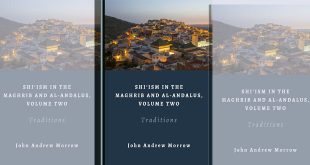In this article, the writer proposes to put into the balance the various theories that have been advanced about the Qurʾān as a historically, i.e., diachronically, founding text.
By reevaluating modernist assumptions in Islamicist scholarship and in Western moral and legal philosophy, I arrive at the conclusion that the Qurʾān was a source of Islamic law since the early Meccan period, when the Prophet Muḥammad began to receive the Revelation. is conclusion, supported by extensive evidence from the Qurʾān itself, compels a modification in the standard narrative about the genesis of Islamic law.
When historians do their work, they often underestimate the crucial role their own assumptions play in shaping the historical accounts they produce, that is, if they are aware of these assumptions. Some altogether miss the profound importance of such self-awareness, and go on to construct histories that describe more the figment of their own imagination than the historical subject they purportedly study. The role of the Qurʾān in the initial formation of Islamic law, properly known as Sharīʿa, is one area in which the problem of lack of self-consciousness has been most pronounced, with results that have had staggering effects on our understanding of Sharīʿa’s formative period. In this article, I propose to put into the balance the various theories (including my own) that have been advanced about the Qurʾān as a historically, i.e., diachronically, founding text. My findings entail wider conclusions that directly bear upon the genesis of the Sharīʿa and its history during the first century of Islam.
Bibliographic Information
Title: Groundwork of the Moral Law: A New Look at the Qurʾān and the Genesis of Sharīʿa
Author: Wael B. Hallaq
Published in: Islamic Law and Society 16 (2009)
Language: English
Length: 42 pages
Groundwork of the Moral Law A New Look at the Qurʾān and the Genesis of Sharīʿa
 Ijtihad Network Being Wise and Faithful Muslim in the Contemporary World
Ijtihad Network Being Wise and Faithful Muslim in the Contemporary World

